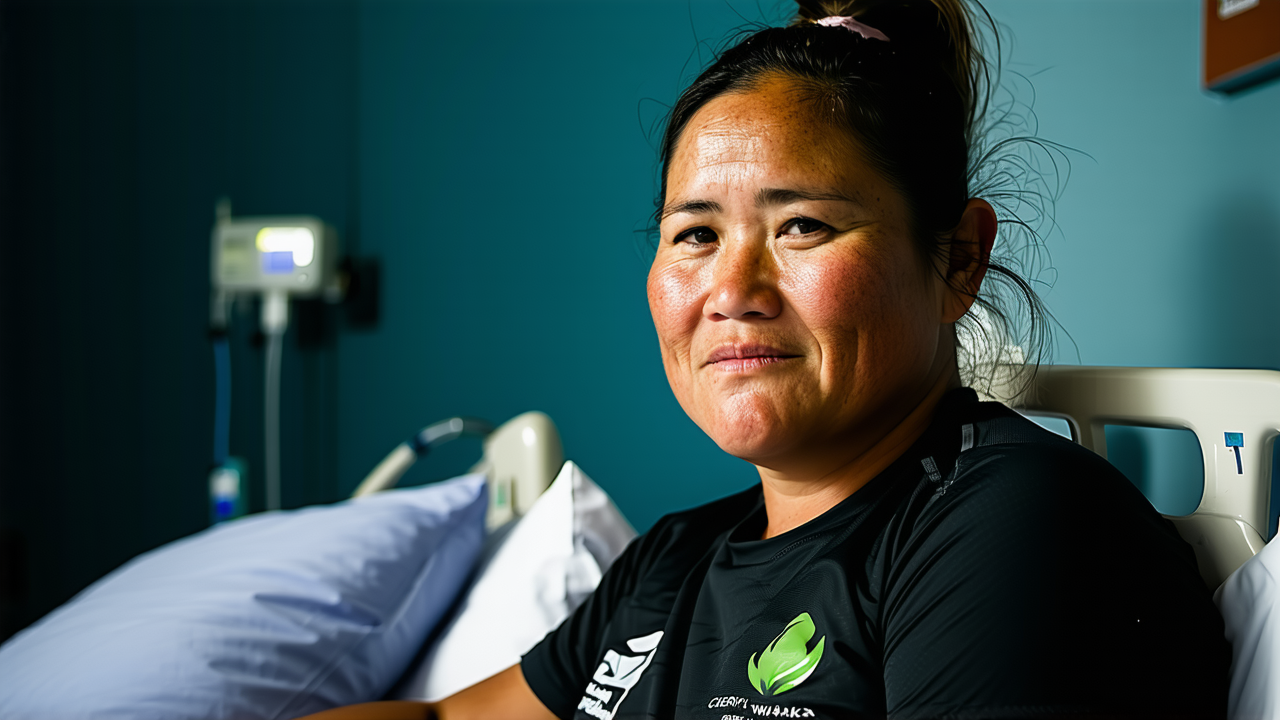Former Black Fern Cheryl Waaka Turns to Fundraising After Stage 4 Bowel Cancer Diagnosis
A Former Champion's Battle Against Cancer
Cheryl Waaka, a former Black Fern and proud mother of two teenagers, is now in a race against time after being diagnosed with stage 4 bowel cancer. A once-fit and strong Māori athlete, Waaka had won two world cups in the Black Ferns jersey and was still active in the sport when her life took a dramatic turn in June.
"I was healthy, running around, doing my everyday job. It was King's birthday weekend. There was a Johnny Isaacs Māori tournament in Kaikohe. I was running the line, AR-ing, and three days later, I'm on the floor in excruciating pain," she recalled.
After a grueling journey through multiple ambulance transfers and a difficult diagnosis, Waaka was told that a tumor had spread to her liver. Her surgeon was able to remove the tumor, but the cancer had already advanced to stage 4.
Waaka's story has sparked a national conversation about the need for earlier cancer screening for Māori and Pacific communities, who are disproportionately affected by colorectal cancer. In March, Health Minister Simeon Brown announced a lowering of the national bowel screening age from 60 to 58, but critics argue that this move still leaves many at risk.
"If the screening age was lowered to 50, my diagnosis would not have been stage 4," Waaka said. "I was up to date on all my health checks. It can happen to anyone. And I don't want it to happen to anyone."
Her children were the first to learn of the diagnosis, a moment she described as one of the hardest of her life. "I wouldn't wish that on anybody. Just myself to be told, and then to actually tell the kids."
According to University of Otago researcher Dr. Oliver Waddell, rates of early-onset colorectal cancer have risen by 26 percent per decade over the past 20 years. Researchers and Māori health practitioners are calling for the screening age to be lowered to 45, as seen in other countries.
"If we had earlier screening, I most probably wouldn't be costing the country money," Waaka said. "That's how I'm looking at it. If I was able to get screened at a younger age, you just imagine how much money this government will be saving in health costs."
Now, Waaka is turning to the community for help. With treatment costs soaring and the need for a non-funded drug that costs $30,000, she is fundraising to begin her first round of treatment on 11 August.
"Life is hard, people are struggling, and for me, I feel like I'm taken from the whānau," she said. "But I'm so grateful that people are willing to help me to survive and for me to fight this fight... which I'm going to do."
Waaka hopes that her legacy will be remembered not just for her on-the-field achievements, but for the strength she has shown in facing this new challenge.
"I'm never one to ask for help, but I'm always giving. So for me, my legacy will be that I've given everything that I can, and hope I've just left something that will remind people of me."
